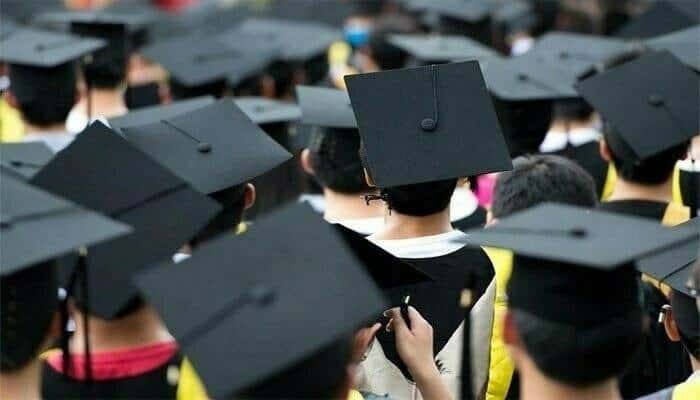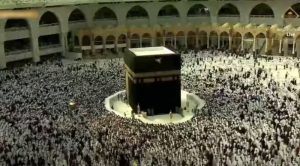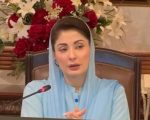Pakistan is at a crossroads and has seen enough in its seventy-five years’ history to learn. It is time to decide which road to follow. Education in general and higher education in particular, plays an extremely important role in making the right decision and building the nation and bringing it out of this severe socio-economic depression.
Undoubtedly, universities prioritize the kind of contributions they can and ought to offer in the realms of research and innovation. Universities indeed are to serve as hubs of creativity and knowledge creation, fostering groundbreaking research across various disciplines. Of course, this innovative research not only advances human understanding but also fuels technological advancements, economic growth, and societal progress which we desperately need.
More importantly, our universities ought to shape the huge future workforce that we have. By providing high-quality education, they equip the youth with the skills, knowledge, and critical thinking abilities necessary for the challenges of the modern world. It is well understood that an adequately educated workforce is vital for economic development, as it enhances productivity, promotes entrepreneurship, and drives innovation in various sectors.
Therefore, the question one needs to address is this: what are the essential characteristics of our universities? Our understanding of these characteristics will shape our expectations of the kind of contributions that can be expected of them. By and large, the nature of universities form part of a much wider process of economic and social reform. Within that process, questions shall be asked as to the nature and functions of universities within the country and how they could be better equipped to serve the nation in its social and economic development.
Yes, universities have a necessary role to play in the life and development of society. But they cannot be regarded only as instruments of the government in power. They have character and essence independent of the government of the day. It is this concern that leads those of us representing universities to seek incorporation of the essential characteristics of universities as generally understood in the modern developed world but grossly ignored in Pakistan.
This article is based on my experience of about forty-five years, in Pakistan and abroad, as a lecturer (or commonly referred to as “teacher” in Pakistan) and a Vice Chancellor. How it translates into the life and cultures of other societies is a matter for universities to determine. But not entirely! For universities by their nature transcend the boundaries of time and place. What is of concern and relevance in one situation will be of concern for us all. Universities are primarily concerned with advanced learning, the principal aim being to develop intellectual independence, where research and teaching are closely linked and interdependent, and most of the teaching is done by people who are active in advancing knowledge. They meet international standards of research and teaching. They are a repository of knowledge and expertise, and should accept the role as critic and conscience of society. Unfortunately, all this is lacking.
As we know, there are five categories of universities in the country: engineering and technology, education, agricultural, medical, and general universities. Within these various categories, each university offers degrees with its unique emphasis and criteria. However, I believe the pivotal role of a university as a critic and conscience of society is particularly crucial given the circumstances.
Certainly, in many foreign countries, lecturers and the administrative and supporting staff of universities would probably fairly readily accept a university’s role as a critic of society (and that word is used in its positive sense as appraiser, reviewer and evaluator, not in the negative sense of critic as opponent or destroyer) but even those who identify themselves within the so called liberal democratic tradition might hesitate in accepting a role for the university as a conscience of society.
Such a role seems to me to be deeper and more challenging and not one to be assumed lightly, without a clear understanding of its requirements and obligations. To be a critic of society is to be involved in the analysis and understanding of what is taking place in society and to assess the merits of what is happening against articulated principles and values. But what are these principles? What are the values that inform the judgments that critics of society make?
In other words, the role cannot just be as critics of society. It includes the deeper responsibility of being a conscience of society. To be a conscience is to be a witness to what is right and what is wrong in society from a moral perspective, to assess what is actually happening in society against the awareness of what ought to be the case, and to provide discernment of the moral good in human experience as a guide to human behaviour and human aspirations.
Universities are expected to act as the conscience of society by upholding moral principles and ethical standards. They serve as the beacons of truth and integrity, guiding individuals and communities in their moral decision-making processes. By promoting ethical conduct and values, they contribute to the development of responsible citizens who are aware of their social responsibilities. They inspire a sense of empathy, compassion, and social justice, fostering a society that is not only intellectually enlightened but also morally upright.
There is a desideratum of realization of character building which is significantly shaped by the prevailing culture and societal values. The process of character development often commences at home and is influenced by early education, thus forming the foundation upon which students enter university. If students arrive with a weak character foundation, universities may struggle to compensate fully, hindering the students’ overall growth. Moreover, universities might lack strong role models or mentors capable of guiding students in character development. The impact of lecturers, the administrative and supporting staff who exemplify positive character traits can be transformative in shaping students’ ethical growth. Additionally, our universities overly prioritize grades, academic performance, and productivity of research papers (due to benefits of the nonsense cumulative Impact Factor in their ranking) diverting attention from the vital aspects of character development.
But can a university in Pakistan, within the domain of the type of Constitution that we have, accept such a role? Yes, I believe it can, but it must fulfil the role in ways that are not only consistent with the rational and progressive values of the society within which it functions, but in ways that are consistent with its essential nature as a university. And so, the university’s role as a conscience of society will be based on nurturing and maintaining those qualities of mind that give people the intellectual capacity and independence to exercise moral judgements for themselves.
The university’s role as a conscience of society will not be fulfilled simply through the exposition and articulation of moral codes and systems of belief which shape and sustain the society and communities of which it is a part, although importantly it will include that. It will also be fulfilled by creating and maintaining a community in which freedom of thought and expression is fundamental, and in which all knowledge is open to rational enquiry and contestable on the basis of available evidence.
The touchstone of a university’s expression of conscience will always be human dignity and human well-being, but its characteristic outcome will be to enable people, individually and in community, to examine and affirm their own moral choices. Its role as a conscience of society will be exercised through all aspects of its teaching and research. By increasing understanding, it will promote positive acceptance of diversity and difference in human experience. It is in this context that we can see the importance of academic freedom and that the autonomy of universities is to be preserved and enhanced.
The object of the provisions in the Constitution relating to universities is to give them as much independence and freedom to make academic, operational, and management decisions that are consistent with the nature of the services they provide, the efficient use of national resources, national interest, and the demands of accountability.
In principle, universities guarantee academic freedom and autonomy. The freedom of academic staff and students, within the ambit of these principles is to question and test received wisdom, put forward new ideas and state controversial or unpopular opinions. The freedom of academic staff and students to engage in research, the freedom of the university and its staff to regulate the subject-matter of courses taught and to teach and assess students in the manner they consider best promotes learning.
In exercising their academic freedom and autonomy, universities shall act in a manner that is consistent with the need for the maintenance by universities of the highest ethical standards and the need to permit public scrutiny to ensure the maintenance of those standards; and the need for accountability by universities and the proper use by universities of resources allocated to them.
Academic freedom and institutional autonomy are not a license for irresponsible behaviour. But it is only through the exercise of its academic freedom, safeguarded by its institutional autonomy, that a university will be able to accept and fulfil a role as a critic and conscience of society.
This understanding of the role of a university as a critic and conscience of society affirms a high view of the university as an institution; an institution which exists for the long term and is expected to play a significant role in sustaining the good qualities of society. It puts value on the university as a continuing and international institution, sustaining knowledge and understanding across the generations, across cultures and across different societies.
Such a view of the university is not only a statement about one of its essential characteristics, but has practical implications about the way a university is managed on a day-to-day basis, how it is funded, how it recruits and manages its staff, and how it organises and sustains its academic life.
But such a role is not a one-sided role. It is not a role which a university can seize and claim for itself without the approval, cooperation, and willing support of the society within which the university exists. The view of the nature of a university is not a function of the university itself. It is the expression of the wish of society, acting through its elected representatives, that universities should have this character and function, for the larger good of society itself and the well-being of the communities within it.
It must be observed, as well, that this role of a university as a critic and conscience of society is not an exclusive role. Other universities within society, including religious universities, family and those associated with media have critical roles to play. But it is the essential character of a university that gives its role in this regard a distinctive quality.
The underlying plea in the context of this discourse is that, in doing so, our universities should be clear as to their essential characteristics, so that their involvement with their communities is an outcome of the functions they are established to undertake in accordance with the values that distinguish them as universities. Here it is in place now to commend the specific role of a university as a critic and conscience of society. We ought to realize the challenge of considering the particular ways in which our universities may adopt this role, both within the immediacy of their own places and as part of an international network of such universities.














